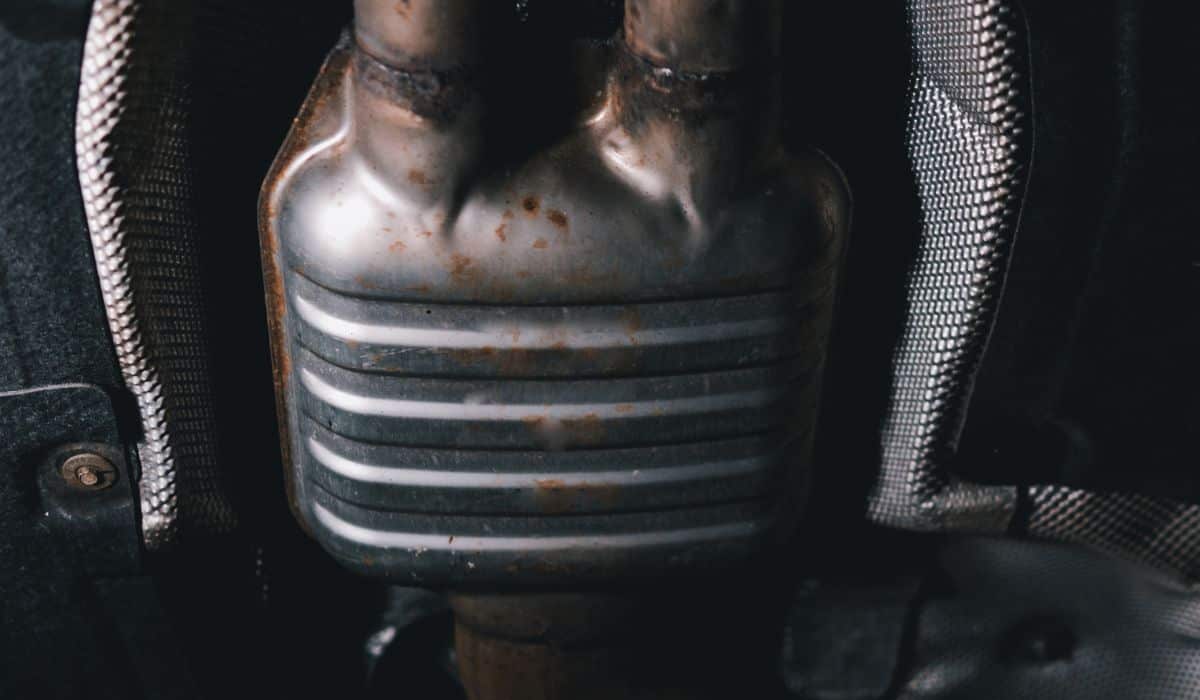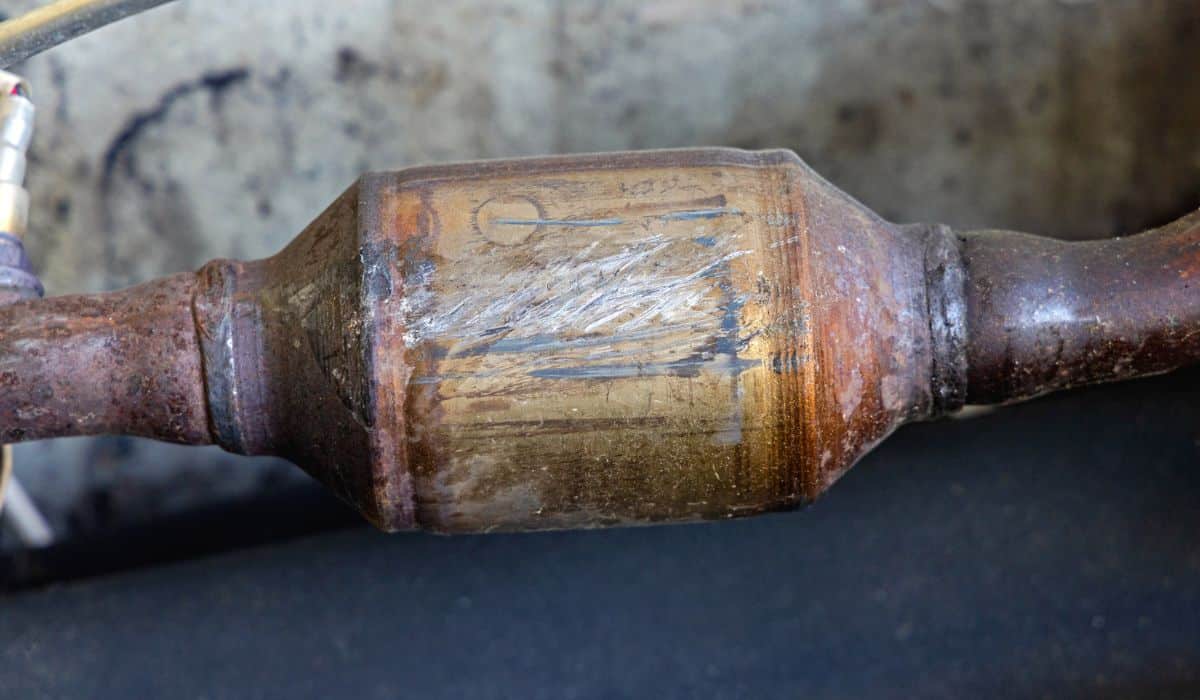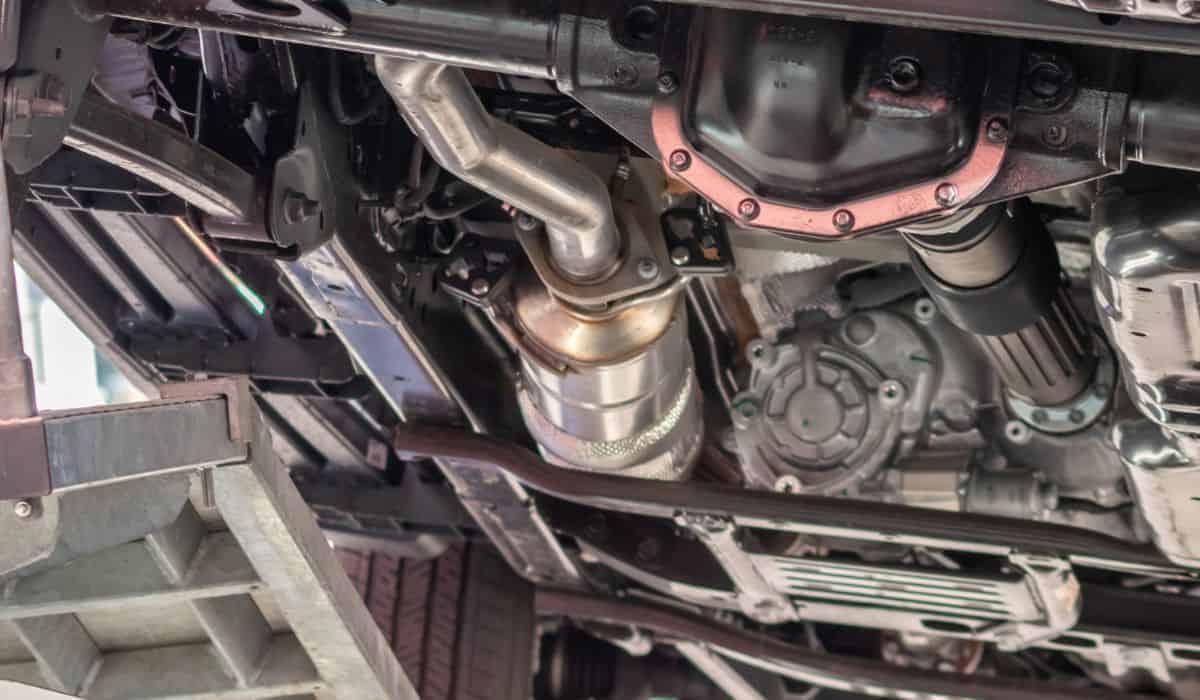What’s the Average Weight of a Catalytic Converter?
Many individuals looking to scrap an old catalytic converter are curious about the weight of the unit. So, what’s the average weight of a catalytic converter, and how much can you expect to earn when you recycle it?

How Much Does a Catalytic Converter Weigh on Average?
Generally speaking, catalytic converters weigh around 7 pounds, but their weight varies depending on the unit. You can find units as low as 2 pounds and as high as 16. The resale value of a converter depends on the unit’s platinum, palladium, and rhodium — not the total weight.
There’s much to learn if you’re considering scrapping an old catalytic converter. Let’s take a deeper dive into the weight of catalytic converters and what affects their value.
Most materials in the scrap industry are measured by their weight in ounces, pounds, tons, or kilograms. Most people scrapping old catalytic converters think they need to know the unit’s weight, but this isn’t always the case. So how heavy is a catalytic converter?
Most catalytic converters weigh around 7 pounds, but weights fluctuate depending on the model.
More weight won’t always yield more cash when recycling an old catalytic converter. What’s important is the weight of the precious metals found inside the unit.
Different units have different amounts of precious metals, but you can use the list below to gauge the weight of your catalytic converter:
| Type of Converter | Weight Range (in pounds) |
|---|---|
| Small Breadloaf | 3-6 |
| Large Breadloaf | 5-9 |
| Bead Catalytic Converters | 10-16 |
| Small Foreign Catalytic Converters | 1-5 |
| Medium-Sized Foreign Converters | 3-11 |
| Small GM Converters | 4-8 |
| Large GM Catalytic Converters | 5-10 |
| Exotic Converters | 2-12 |
| Aftermarket Converters | 2-4 |
| Torpedo Catalytic Converters | 5-15 |
| Small Foil Converters | 2-3 |
| Medium-Sized Foil | 3-8 |
| Large Foil Converters | 4-10 |
| DPFs | 3-16 |
| Pre-Foreign Converters | 2-8 |
| Pre-Domestic Converters | 2-8 |
| Flow Catalytic Converters | 3-6 |
Of course, not every converter is the same, and there are several variables that can affect a converter’s weight.
Here’s a breakdown of some of the ways a converter’s weight can differ:

Factors Affecting Catalytic Converter Weight
Age
Older catalytic converters between the 1970s and 1980s were much heavier than today’s units. These units do not typically sell for more, even though they weigh much more. Older units also usually have fewer precious metals inside compared to newer converters.
Engine Location
Catalytic converters installed directly underneath the vehicle are typically much larger and weigh more than units next to the engine.
However, the weight of the unit does not necessarily impact the recycle value, as the precious metals found inside are more important. The engine location can also affect the weight via the materials used.
Engine Size
The engine size can also affect the size and weight of a catalytic converter. That said, larger and heavier converters don’t always yield more resale value.
The value of a scrap catalytic converter depends on the precious metals found inside. Units from foreign and exotic vehicles typically resale for more, regardless of their size.
How Much of Each Precious Metal Is in a Catalytic Converter?
The precious metals inside a converter are what makes them valuable for recycling and scrapping. The three precious metals that are most commonly found inside a converter include platinum, rhodium, and palladium.
Each unit will vary, but here’s an idea of how much metal you can expect in a standard catalytic converter:
- Platinum: 3-7 grams
- Palladium: 2-7 grams
- Rhodium: 1-2 grams
What’s a Catalytic Converter Worth in Scrap?

Catalytic converters are sought after in scrap and recycle markets, as they can return large yields for very little labor. So, what’s a catalytic converter go for in the scrap industry?
Prices vary depending on the unit, but the national average for a single recycled catalytic converter is roughly $140.
Other units, like Bead Converters found in certain Chevy and GM vehicles, can go for as little as $25 and as high as $214. Large foreign converters tend to dominate the market and range in price from $250 to $700. Various catalytic converts can be scrapped for as high as $1,000, depending on the unit, model, and condition.
The price of a scrap catalytic converter typically hinges on how many precious metals the unit contains.
These precious metals are commodities like anything else, so just like gasoline or milk, their prices fluctuate. It’s best to confirm prices through an online resource, like Markets Insider, for the most up-to-date figures.
With that in mind, each unit will vary, but here’s an idea of the price of the metals you can expect in a standard catalytic converter:
Platinum
The actual value of a catalytic converter depends on the precious metals found inside a unit. The price of precious metals is constantly changing, but platinum has a market price of around ~$740 to ~$1,060 per ounce at the time of writing this article.
Palladium Market Value
Palladium is another precious metal found inside catalytic converters and jewelry. Prices constantly fluctuate, but palladium has a market price of around ~$1,650 to $1,840 per ounce at the time of writing this article.
Rhodium Market Value
Rhodium is another precious metal found inside catalytic converters and jewelry. It’s the most valuable metal inside recycled converters. Prices constantly fluctuate, but Rhodium has a market price of around $11,350 per ounce at the time of writing this article.

What’s the Highest Paying Catalytic Converter for Scrap?
The scrap value of a catalytic converter depends on the amount of platinum, palladium, and rhodium inside the unit. Different models contain varying amounts of precious metals, so prices will fluctuate wildly.
One of the most recent high-end catalytic converters includes the Ferrari F430, which had a scrap value of around $3,800 in 2020. The Ferrari F430 has two converters, meaning the total scrap value is around $7,600 before labor costs.
Other expensive units include the Lamborghini Aventador, which also has two catalytic converters fetching roughly $3,200 per unit or $6,400 in total. A domestic converter with a high recycle value is the Dodge Ram 2500, with a scrap price of around $3,500.
Other Examples of High-Paying Catalytic Converters
Many catalytic converters can be sold for as little as $50 to $250, while other units can be scrapped for over $800. Several high-paying catalytic converters can be recycled and sold for scrap material, including some of the following:
- Ford F-250: ~$3,300
- Ford Mustang: ~$1,800
- Toyota Prius: ~$800
- BMW N55: ~$800
- Chevrolet Trailblazer: ~$400
These are just a few vehicle models with high-value catalytic converters. These prices are estimates and will fluctuate depending on the current value of the precious metals. Labor costs and other charges can also affect the total resale value.
Some vehicles have two converters, so the model also affects the price.
That said, exotic and foreign converters will typically yield more scrap value than domestic units—but it always depends on the number of precious metals inside the unit.
hy Weight Matters Less Than You Might Think
Most individuals looking to recycle old catalytic converters believe the weight impacts the price of the unit, but this isn’t always the case. Most materials in the scrap industry are evaluated by weight, but catalytic converters are priced based on the precious metals inside the unit.
So, when scrapping a used catalytic converter, more weight won’t always yield more cash. What’s important is the weight of the platinum, palladium, and rhodium inside the unit. Different models have different amounts of precious metals.
